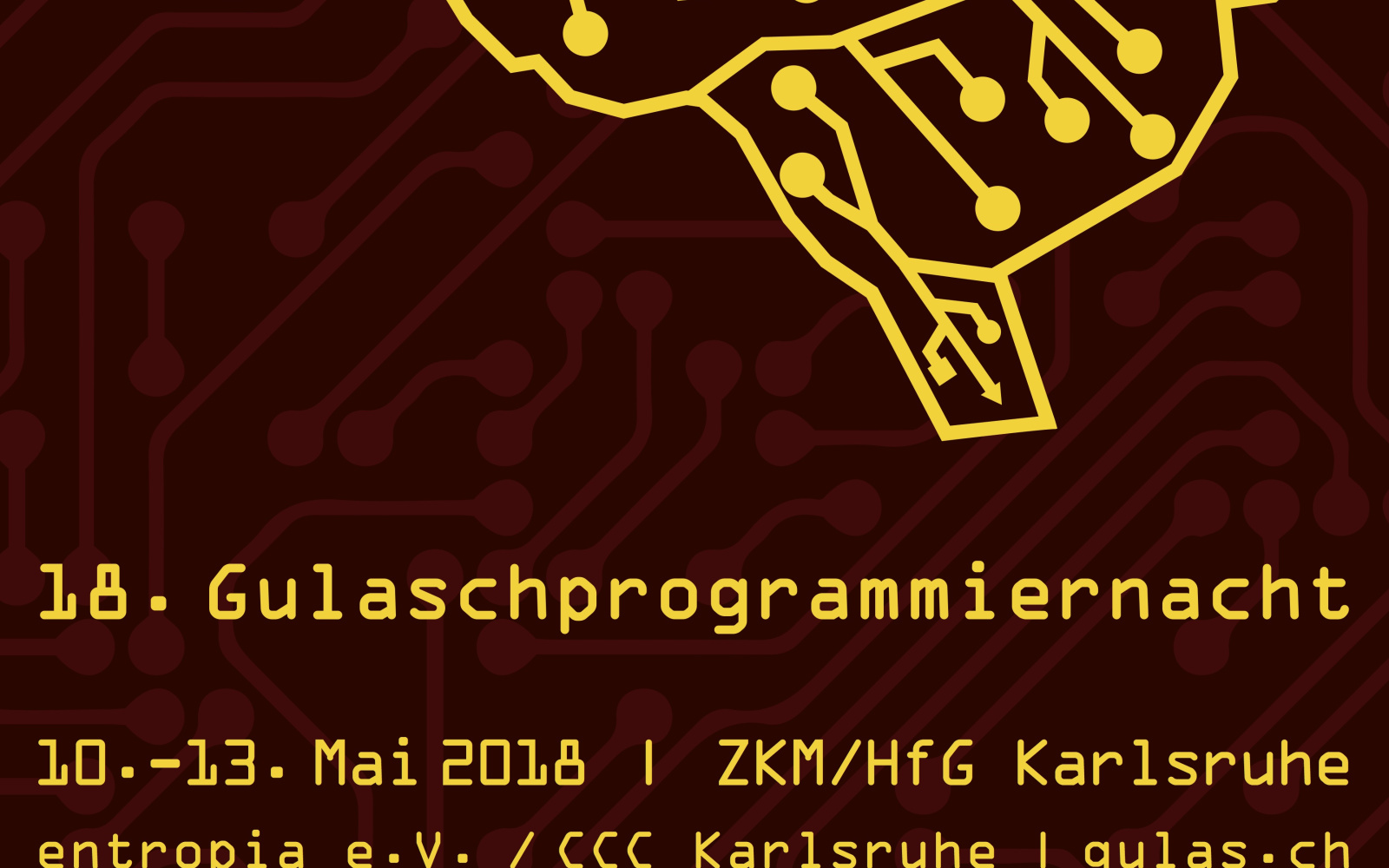- Event
18th Goulash Programmers Night
Thu, May 10 – Sun, May 13, 2018
Hacking, programming, lectures, workshops – and of course goulash: From May 10–13, 2018 Entropia e.V. – Chaos Computer Club (CCC) Karlsruhe, HfG and ZKM | Karlsruhe invite you again to the »Goulash Programmers Night«.
Under the motto »Digital Naives« more than 1200 people meet in the atriums of the ZKM and the HfG to exchange ideas about technology and society. The motto of this year's GPN sets a counterpoint to the concept of hope of the »digital natives«. To believe that anyone who has grown up on the Internet automatically has an understanding of technology and is aware of the consequences of its use is literally naive.
Founded in 2002 by computer science students from Karlsruhe, the GPN has developed into one of the largest events of the CCC, to which more than 1200 visitors are expected this year. The GPN is not only aimed at »digital natives« or nerds, but at all interested parties. In addition to joint programming, handicrafts and creative work, there will be an extensive workshop and lecture program on topics such as artificial intelligence, digital medicine and a changing society.
The knowledge and exhibition experiment »Open Codes« complements the GPN to an interdisciplinary event. With over 200 works of art, artefacts and documents, the ZKM exhibition examines the comprehensive digitization of the world and its effects on art and everyday life, industry and science.
The eponymous goulash is not missing either – volunteers cook large quantities of goulash with and without meat for all participants. Admission to the event is free, registration is requested.
